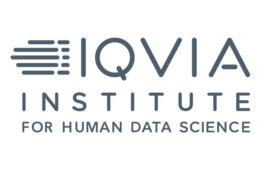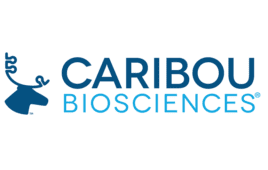In early 2022, secretive Altos Labs stunned with a record $3 billion launch to pursue anti-aging “cellular rejuvenation,” amid rumors of Jeff Bezos’ backing. But a roundup of the top 25 private healthcare and biotech companies reveals a landscape of grand ambitions to disrupt healthcare coupled with cautionary tales. Included in the mix is scandal-plagued…
FDA approves pair of therapies for rare pediatric cancers: Novartis’ Lutathera and Day One’s Ojemda
The FDA has signed off on two novel therapies targeting rare pediatric cancers. Novartis’ Lutathera targets aggressive gastroenteropancreatic neuroendocrine tumors (GEP-NETs) in children 12 and up, while Day One Biopharma’s Ojemda (tovorafenib) tackles treatment-resistant BRAF-mutated relapsed or refractory pediatric low-grade glioma (pLGG) with a BRAF fusion or rearrangement, or BRAF V600 mutation These approvals offer…
20 biotech startups attracted almost $3B in Q1 2024 funding
The top 20 healthcare-focused biotech companies collectively raised $2.9 billion in the first quarter of 2024, according to data sourced from Crunchbase. That represents a 161% increase compared to the $1.1 billion raised by the 20 largest funding rounds involving healthcare-focused biotech companies in Q1 2023, indicating more confident bets on the market viability of…
Global biotech VC trends in Q1 2024
The first quarter of 2024 saw a flurry of funding activity in the biotech sector, with early-to-mid-stage companies attracting most of the investment dollars. Among the most notable late-stage deals was blood-based cancer diagnostics firm Freenome‘s $254 million Series E round. The South San Francisco-based company, which is developing a platform for early cancer detection…
How digital pathology can help drug developers address the forked road in oncology and beyond
Digital pathology is disrupting the drug development process, replacing traditional microscopy rooted in Victorian Era approaches with high-resolution images and AI-powered analysis tools. In a recent editorial webinar, industry experts Nathan Buchbinder (chief strategy officer at Proscia), Dr. John Cochran (chief medical officer and chief pathologist at Q² Solutions, an IQVIA subsidiary), and Dr. Monika…
Pitt’s high-performance computing upgrade signals accelerated translational research
The University of Pittsburgh’s recent, significant expansion of its high-performance computing capabilities, courtesy of a gift from Dell Technologies, indicates a strategic commitment to using large-scale data analysis for faster translational research. The additional 9.672 gigaFLOPS of computational power – translating to nearly 9.7 trillion additional computations per second – could help Pitt’s Innovation Hub…
Best-selling pharmaceuticals of 2023 reveal a shift in pharma landscape
Note: This feature on the best-selling pharmaceuticals of 2023 was updated on March 27. Changes are possible as more data become available. Sales of drugs with more than one developer are added together (as in the case of the COVID-19 vaccine Comirnaty) unless one of those companies records the net sales for it, i.e., Dupixent.…
Genentech’s lab in the loop aims to tap the power of quantity for quality drug discovery
We can design chips that power self-driving cars and create physically-realistic video footage based on text descriptions. Yet, as Genentech’s Aviv Regev pointed out in a session about the company’s lab in the loop at NVIDIA’s GTC conference, the humble cells within us operate with a complexity that still eludes our full understanding. It turns out that a cell is itself like a computational device…
NVIDIA expands BioNeMo platform with new foundation models and microservices for AI-powered Drug Discovery
NVIDIA is putting the power of generative AI for drug discovery into the hands of more pharmaceutical and biotech companies with an expanded collection of AI models and flexible deployment options. More than 100 firms are already using the company’s biomolecular BioNeMo platform to accelerate the development of therapeutics. “For the first time in history,…
Iambic Therapeutics and NVIDIA partner to slash cancer drug development timelines
Using generative AI in drug discovery, Iambic Therapeutics (formerly Entos) has advanced its IAM1363 drug candidate from program launch to clinical studies in fewer than 24 months — a process that often takes several years. Iambic Therapeutics’ AI drug development milestone relied on an alliance with NVIDIA researchers and engineers and through the use of…
Lantern Pharma aims to take drug to phase 3 for $100-200 million with AI-powered approach
Lantern Pharma’s AI-powered sprint Lantern Pharma (NASDAQ: LTRN), a publicly traded clinical-stage biotech company with a market cap of around $79 million as of mid-March 2024, is shooting for developing $200 million drugs with a machine learning-based platform. The oncology-focused firm Lantern Pharma, profiled last year, has advanced its new drug (LP-284) to a Phase…
In 2023, Roche and Novartis led the pack in drug pipeline scale
When reviewing R&D spending trends for 2023, Merck & Co. is a clear outlier given its decision to count its $10.3 billion Prometheus acquisition as an R&D charge. In all, the company committed more than half of its revenue to R&D. But Swiss giants Roche and Novartis remain frontrunners in terms of their pipeline of…
Navigating the cancer progression pathway with liquid biopsy
Tumor heterogeneity analysis is a challenging but critical step for the advancement of cancer therapy research. DNA mutation interrogation and gene expression pattern evaluation are crucial for predicting a tumor’s response or resistance to specific drug or hormone treatments. Liquid biopsy has emerged as a promising tool, offering a rapid, minimally invasive method for early…
Top pharma companies ranked by 2023 R&D spend
Which major pharmaceutical company leads the way in research and development? Data reveals that the top R&D spender in 2023 was Merck & Co., by a wide margin. While Pfizer had almost as much revenue as Merck ($60.1 billion vs. $58.5 billion), its R&D ratio was on the lower end at 18.29%, or $10.7 billion.…
Why Merck shelled out $30B+ on R&D in 2023
In 2023, Merck & Co. made a considerable investment in research and development, spending more than $30 billion. This figure represents more than double the company’s R&D spending ($13.5 billion) in 2022. The closest competitor in terms of R&D investment was Roche Pharmaceuticals, with a 2023 R&D expenditure of roughly $14.7 billion. This sum is…
Debiopharm’s multilink technology and partnerships drive oncology pipeline strategy
Debiopharm, an independent Swiss biopharmaceutical company based in Lausanne, seeks to carve a niche in the competitive oncology and infectious disease markets. Its business model focuses on in-licensing promising drug candidates from universities and smaller biotechs, aiming to add value through development. (The company is also partnering with AI-focused firms like VeriSIM Life.) Sandra von…
GLP-1s, ADCs, AI and the future of pharma
Pharma’s potential breakthroughs in AI, ADCs, and GLP-1 receptor agonists raise a critical question: can innovation outpace the relentless rise of chronic disease? The IQVIA Institute for Human Data Science sheds light on this theme, among many others, in its 80-page Global Trends in R&D 2024 report. Pillar 1: GLP-1 receptor agonists targeting metabolic disease…
Pushing the frontier of drug discovery with the world’s most powerful supercomputer
Oak Ridge National Laboratory’s Frontier, the world’s first exascale supercomputer with its dizzying 1.1 exaflop speed, is a game-changer for scientific domains ranging from drug discovery to material science and oceanography. The computer holds the top spot on the TOP500 list, an independent ranking of the world’s most powerful supercomputers. “It’s like having a million…
After withdrawal, GSK’s Blenrep shows promise in phase 3 DREAMM-7 study
In November 2022, GSK began the process of withdrawing Blenrep’s U.S. marketing authorization after the phase 3 DREAMM-3 trial failed to show an overall survival benefit compared to standard therapy. But GSK has signaled its hope that the B-cell maturation antigen (BCMA) antibody-drug conjugate could have a new lease on life with new data from…
Why clinicians are the critical link for AI in transforming oncology care
In the third episode of AI Meets Life Sci, Ben Newton, General Manager of Oncology at GE Healthcare, offered a succinct definition of artificial intelligence that harkens back to the original conception from the 1950s, when researchers gathered at Dartmouth College to lay the groundwork for the field. “AI for me is the simulation of…
M&A strong at the dawn of 2024, but it’s too early to tell if it will match 2023 levels
The biopharma sector appears to be gearing up for a dynamic year of merger and acquisition activity in 2024. Analysts at EY indicate the sector could see between $225 billion and $275 billion in total deal value, in line with 2023’s roughly $238 billion. In the first 24 days of January this year, there were…
Rice Biotech Launch Pad plans to make Houston a top-tier biotech hub
Houston boasts many world-class assets that have made it a formidable player on the global stage. From the world’s largest medical complex to mission control for the cosmos, few other cities can compete with its diverse strengths. Houston is also home to the prestigious Rice University, renowned for its leading science and engineering programs. Houston,…
Supercomputer-based Bayesian approach to AI pays dividends for BPGbio
In an AI hype-filled biopharma industry, one company is taking a back-to-basics yet supercomputer-powered approach — using Bayesian analysis on massive patient datasets to guide drug discovery. The company crunches trillions of data points per patient. “It’s massive, which is why we use a supercomputer,” said Niven R. Narain, Ph.D., BPGbio CEO. The company has…
Caribou Biosciences’ CEO discusses CRISPR progress, future goals, and gender equality in biotech
Founded in 2011, Caribou Biosciences is a pioneer in the development of CRISPR genome editing technologies, a field honored with the Nobel Prize in Chemistry in 2020. Co-founded by Jennifer Doudna, Ph.D., one of the Nobel laureates, and CEO Rachel Haurwitz, and two other CRISPR pioneers, the company has raised over $800 million in funding,…
What’s next for biotech? Q4 2023 funding trends point beyond the usual suspects
Oncology may continue be one of the hottest sectors across the pharma sector, but other therapeutic areas are catching up in terms of innovation and investment. While oncology and hematology jointly accounted for about one-third of the new FDA approvals in 2023, investors are increasingly betting on precision medicine, advanced drug delivery systems and the use of…
























